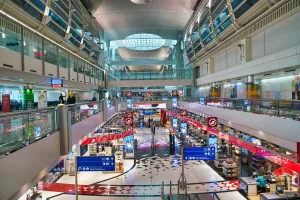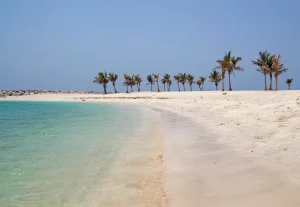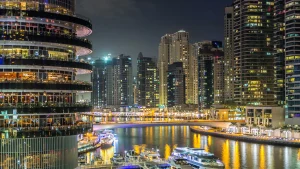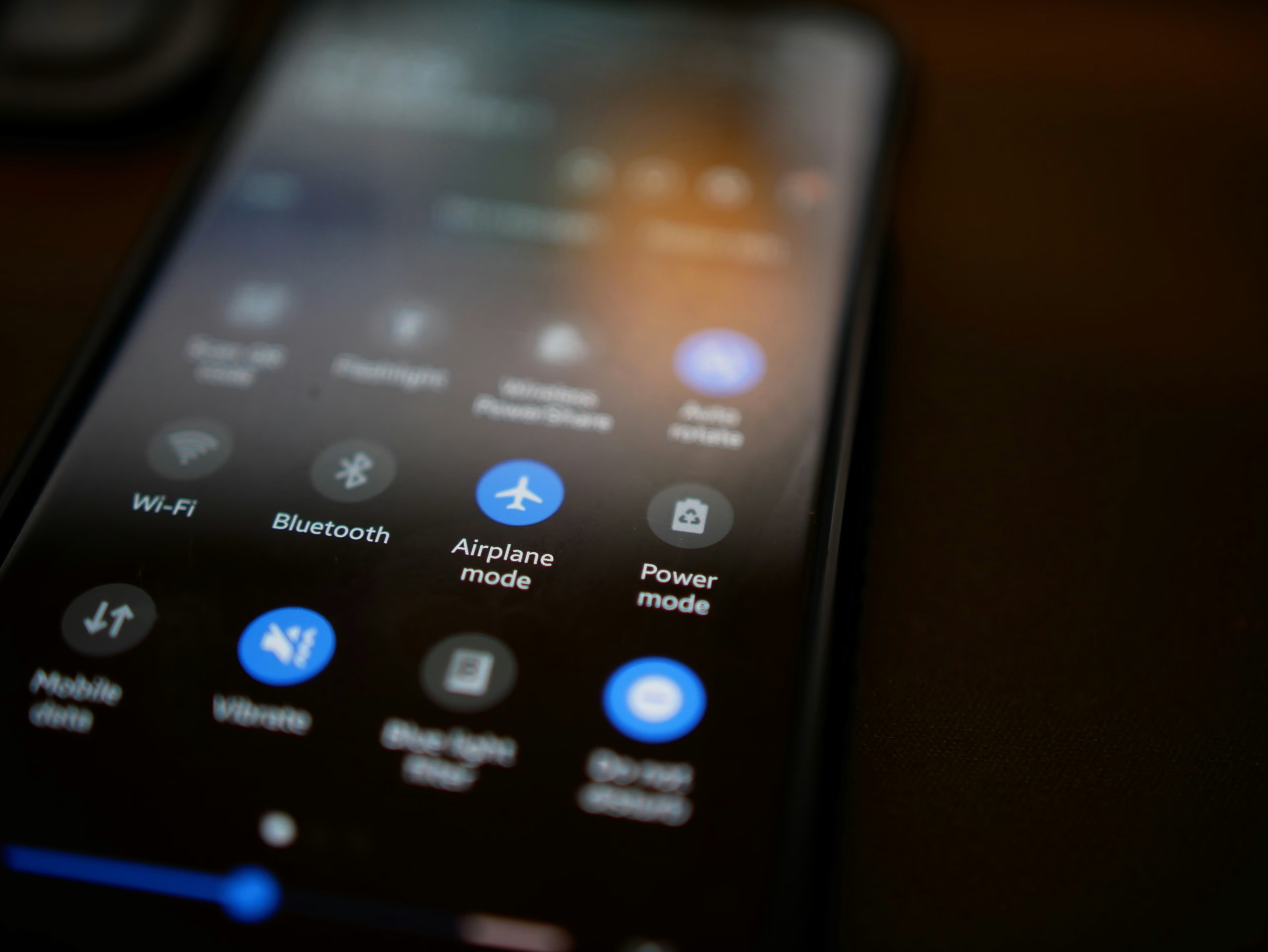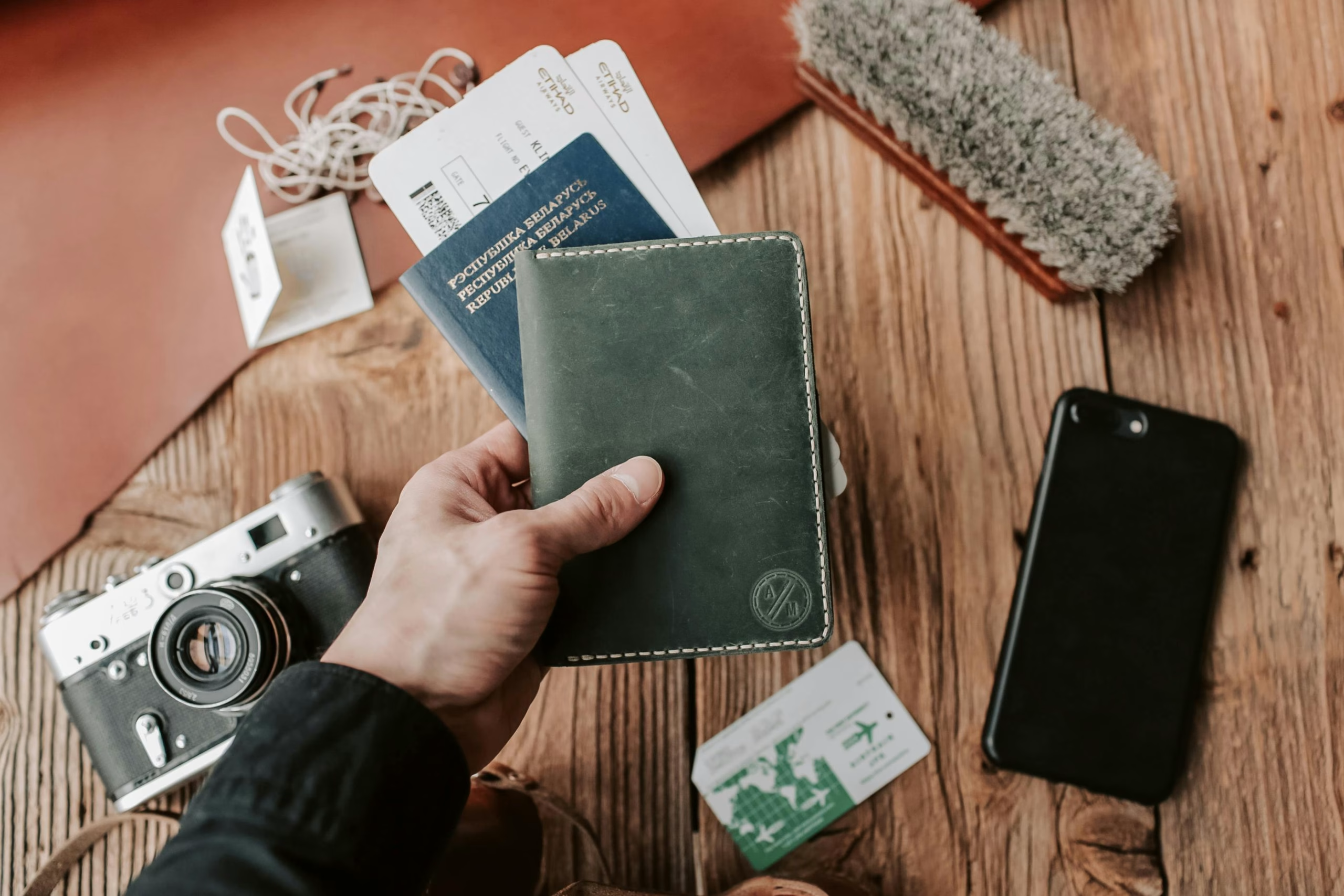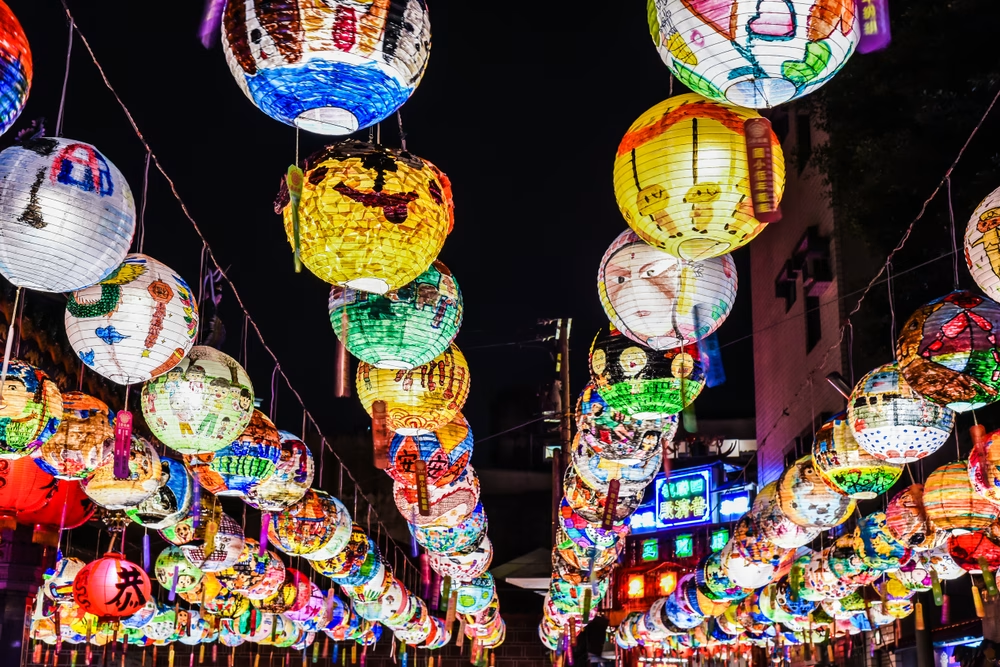Travel to Dubai: Your Essential Guide for an Unforgettable Experience
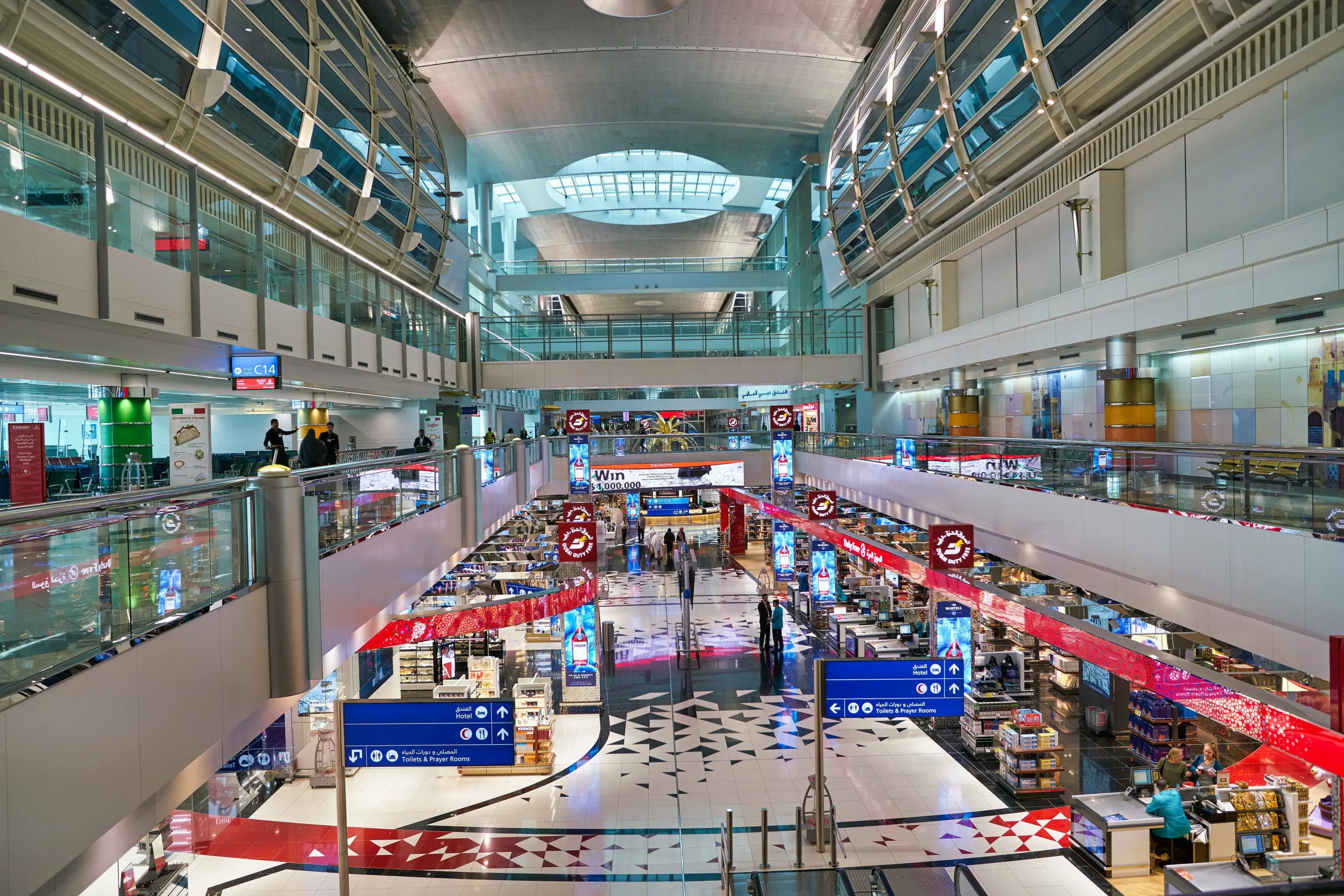
Traveling to Dubai offers a unique blend of modern luxury and rich cultural experiences. From its stunning skyline dominated by the Burj Khalifa to the vibrant markets of Old Dubai, there is something for every traveler to enjoy. Whether seeking adventure, luxury shopping, or cultural exploration, Dubai provides a diverse range of activities and attractions that cater to all interests.
Understanding the practical aspects of visiting Dubai is essential for a smooth trip. Travelers should be aware of visa requirements, local customs, and transportation options to navigate the city effectively. With this knowledge, visitors can fully immerse themselves in what Dubai has to offer without any hiccups.
Dubai’s appeal lies in its ability to surprise and delight at every turn. Engaging with its world-class dining, breathtaking architecture, and enriched history makes for an unforgettable travel experience.
Visa and Entry Requirements
Travelers planning a visit to Dubai should be aware of the various visa options available, the application process, and the customs regulations that might affect their journey. Understanding these elements is crucial for a smooth travel experience.
Types of Visas
There are several visa types for entry into Dubai, depending on the purpose of the visit. The most common include:
- Tourist Visa: Ideal for leisure travelers, this visa is typically valid for 30 days and can be extended. It is necessary for those who do not qualify for a visa on arrival.
- Transit Visa: For travelers stopping in Dubai en route to another destination, a 48 or 96-hour transit visa may be available.
- Visit Visa: This is suitable for those visiting family or friends in the UAE, often allowing stays of up to 90 days.
- Business Visa: Designed for those traveling for business purposes, this visa may have varying validity based on the specific business engagement.
Visa Application Process
Applying for a visa to Dubai can be straightforward, with multiple options available. Travelers can apply through:
- Airlines: Many airlines offer visa services during the ticket booking process.
- Hotels: Certain hotels in Dubai can assist with visa applications for guests.
- Travel Agents: Local or international travel agencies can also facilitate the visa application.
The application typically requires a valid passport, completed application form, recent photographs, and sometimes proof of accommodation. Processing times vary but are generally quick, allowing for efficient travel planning.
Customs Regulations
Travelers must adhere to specific customs regulations when entering Dubai. Key points include:
- Duty-Free Allowances: Passengers can bring in certain items tax-free, such as up to 4 liters of alcohol or 400 cigarettes.
- Prohibited Items: The import of drugs, pork products, and items offensive to Islam is strictly forbidden.
- Documentation: It’s essential to keep all relevant documents, including visa, passport, and any customs declarations, readily accessible for inspection upon arrival.
Adhering to these regulations will ensure a hassle-free entry into Dubai.
Best Time to Visit
Choosing the right time to visit Dubai can enhance the travel experience significantly. Optimal weather and exciting events play a key role in making the trip enjoyable.
Weather Considerations
The climate in Dubai is predominantly hot, with two main seasons: hot and hotter. The best time for visitors is from November to March. During these months, temperatures range from 57°F to 88°F (14°C to 31°C), providing a comfortable environment for outdoor activities and sightseeing.
In contrast, the summer months from June to August can see temperatures soaring above 104°F (40°C), creating challenging conditions for travelers. This heat can limit outdoor options, making morning or evening activities more favorable. Therefore, visiting during the winter months allows for pleasant weather and more opportunities to explore the city’s attractions.
Festivals and Events
Dubai hosts numerous festivals and cultural events from November to March, making it an attractive time for tourists. Events such as the Dubai Shopping Festival, held in January, draw significant crowds with discounts and entertainment.
Cultural festivals like Dubai Design Week and the International Film Festival take place during this period, showcasing creativity and diversity. Visitors can experience local customs as well as international art, design, and film.
The cooler weather combined with these events creates an engaging atmosphere, making it an ideal time for those looking to immerse themselves in Dubai’s vibrant culture.
Accommodation Options
Dubai offers a diverse range of accommodation options catering to various preferences and budgets. From luxurious hotels that provide unparalleled experiences to budget-friendly stays that ensure comfort without breaking the bank, visitors can find the perfect fit. Cultural resorts also offer unique insights into the region’s heritage while providing modern amenities.
Luxury Hotels
For those seeking an extraordinary experience, Dubai’s luxury hotels are unmatched. Burj Al Arab, known for its iconic sail-shaped silhouette, offers opulent suites and personalized service. Guests relish access to private beaches and gourmet dining options.
Another top choice is the Armani Hotel, located inside the Burj Khalifa. Its elegant design mirrors Giorgio Armani’s signature style, providing a sophisticated ambiance. Visitors enjoy exclusive amenities, including spa services and high-end retail therapy.
Atlantis, The Palm presents a unique blend of luxury and adventure, with an impressive water park and marine habitat. Each accommodation option is designed to provide a lavish experience characterized by stunning views and exceptional hospitality.
Budget Stays
Travelers looking to manage expenses will find numerous budget accommodations that do not compromise on quality. Rove Hotels, a local chain, provides modern and central locations with essential amenities at affordable prices. Their family-friendly setups make them ideal for budget-conscious visitors.
Ibis One Central offers practical comfort for business travelers and tourists alike. With cleanliness and convenience prioritized, this hotel serves as a solid base for exploring the city.
Citymax Hotel is another optimal choice, featuring competitive rates without sacrificing service quality. Guests appreciate the straightforward, no-frills experience that allows for more budget to spend on activities and dining.
Cultural Resorts
For those interested in a culturally immersive experience, Dubai’s cultural resorts provide a connection to the region’s heritage. Bab Al Shams Desert Resort & Spa reflects traditional Arabian architecture, offering a serene escape with desert vistas. Guests can engage in activities like falconry and camel rides, emphasizing the local culture.
Al Maha, a Luxury Collection Desert Resort & Spa combines luxury with desert experiences. Each suite boasts private pools and desert views, making it a perfect retreat. Visitors can partake in Bedouin-inspired dining and explore nature through guided tours.
These accommodations not only offer comfort but also enrich the travel experience by showcasing the rich culture of Dubai.
Cultural Etiquette and Laws
Understanding the cultural etiquette and laws in Dubai is essential for any traveler. The local customs reflect a blend of traditional values and modern influences, emphasizing respect and modesty. This section covers the key aspects of dress codes, social behaviors, and legal restrictions that visitors should adhere to.
Dress Code
In Dubai, dressing modestly is not just a recommendation; it is a crucial aspect of respect for local customs. While the city has a more liberal approach compared to other parts of the UAE, it is important to follow certain guidelines.
- For Women: Clothing should cover the shoulders and knees. Avoid wearing low-cut tops, short skirts, or tight-fitting attire in public spaces.
- For Men: Sleeveless shirts should be avoided. Long trousers are preferred, especially in more conservative areas.
Wearing appropriate swimwear is acceptable at beaches and pools, but one should cover up when leaving those areas.
Social Behaviors
Social interactions in Dubai must be approached with awareness of local customs. Public displays of affection (PDA) between opposite sexes are generally not acceptable. A brief kiss on the cheek as a greeting is typically permissible, but more intimate displays can lead to misunderstandings.
When greeting others, it is advisable to wait for the other party to initiate a handshake, especially between men and women. Eye contact should be respectful, and maintaining personal space is essential to avoid discomfort.
Legal Restrictions
The legal landscape in Dubai is strict, and understanding these laws is vital. The consumption of alcohol is only permitted in licensed venues, and public drunkenness can lead to severe penalties, including arrest. It is illegal to drive under the influence.
Furthermore, acts considered disrespectful, such as swearing or public arguments, can result in fines or imprisonment. Familiarity with these laws helps ensure a trouble-free visit. Travelers should always remain aware of their surroundings and maintain conduct befitting a culturally sensitive environment.
Top Attractions in Dubai
Dubai is known for its iconic landmarks and vibrant culture. The city boasts a mix of modern architecture, traditional sites, and luxurious experiences that captivate every visitor. Below are essential attractions that highlight the unique character of Dubai.
Burj Khalifa
The Burj Khalifa stands as the tallest building in the world, reaching a height of 828 meters (2,717 feet). Visitors can ascend to the 124th floor for breathtaking panoramic views of the city and beyond. The observation deck features floor-to-ceiling glass walls, providing stunning visuals of the surrounding landscape.
The experience includes an informative multimedia presentation about Dubai’s history and the construction of the tower. At sunset, the view becomes even more remarkable, with the city bathed in golden hues. Dining experiences are also available at restaurants situated within the tower, offering a unique opportunity to enjoy meals with a backdrop of Dubai’s skyline.
The Dubai Mall
The Dubai Mall is not only a premier shopping destination but also an entertainment hub. Spanning over 1 million square meters, it features more than 1,200 retail outlets, making it one of the largest malls worldwide. Visitors can enjoy a range of activities, including an indoor ice rink, a virtual reality park, and an aquarium housing over 140 species of marine life.
The mall also hosts the Dubai Fountain, which features captivating water shows set to music. With its extensive dining options and attractions, The Dubai Mall ensures there is something for everyone, from families to luxury shoppers.
Dubai Creek
Dubai Creek is a historical waterway that has shaped the city’s development and culture. This natural harbor was once the center of trade and commerce, and it still holds recreational significance today. Visitors can take traditional abra rides, which provide a unique way to explore the bustling markets and scenic views along the banks.
Key attractions include the Dubai Museum, located in the Al Fahidi Fort, and the vibrant souks such as the Spice Souk and Gold Souk. Strolling along the creek allows guests to appreciate the blend of old and new Dubai, highlighting the city’s rich heritage.
The Palm Jumeirah
The Palm Jumeirah is a marvel of modern engineering, designed to resemble a palm tree from above. This stunning archipelago features luxurious hotels, private villas, and pristine beaches. It is home to the iconic Atlantis, The Palm, which boasts an impressive waterpark and marine-themed attractions.
Visitors can relax at various beachfront resorts or indulge in water sports, such as jet skiing and paddleboarding. The Palm Jumeirah also offers exceptional dining experiences with waterfront views, making it a perfect destination for relaxation and entertainment. This unique landmark truly captures the essence of Dubai’s luxury lifestyle.
Transportation and Getting Around
Navigating Dubai offers various options tailored to different preferences and budgets. Understanding the available modes of transport helps visitors maximize their experience in the city.
Public Transport
Dubai boasts an extensive public transport system that includes the Dubai Metro, buses, and water taxis. The Dubai Metro is a modern and efficient option, featuring two main lines connecting key areas such as downtown, the airport, and tourist attractions. Trains are frequent, clean, and air-conditioned.
Buses complement the metro service and cover areas not accessible by train. They are affordable, but schedules can vary. Additionally, water taxis provide scenic routes across Dubai Creek and allow travelers to enjoy the city from a different perspective.
For tourists, the Nol Card is essential for seamless travel across different modes of public transport. It can be purchased at metro stations, convenience stores, and select kiosks.
Car Rentals and Driving
Renting a car in Dubai can offer convenience, especially for those wishing to explore the city at their own pace. Numerous reputable rental agencies operate in Dubai, providing a range of vehicles from economy cars to luxury models.
It is important to note that a valid driver’s license is required, and international visitors should carry their International Driving Permit. Traffic drives on the right side, and roads are well-maintained. However, visitors should be aware of rush hour congestion and adhere to local driving laws.
Parking is widely available, including at shopping malls and tourist attractions, often at a fee. Applications for parking payments can typically be made via mobile apps.
Taxis and Ride-Sharing
Taxis are a reliable and popular way to get around Dubai. They are metered and can be hailed on the street or booked via phone or mobile apps. Taxis are usually clean and feature knowledgeable drivers familiar with the city’s layout.
In addition to traditional taxis, several ride-sharing services like Uber and Careem operate in Dubai. These platforms are convenient for those who prefer app-based booking and often provide various vehicle options.
Both taxis and ride-sharing options operate 24/7, ensuring that visitors can navigate the city at any time. Prices are typically competitive, with ride-sharing often providing promotional discounts.
Dining and Cuisine
Dubai offers a rich tapestry of culinary experiences that reflect its multicultural environment. Visitors will find local flavors, upscale dining options, and a vibrant street food scene, making dining an essential part of their travel experience.
Local Food Experiences
Exploring local cuisine is fundamental to understanding Dubai’s culture. Traditional dishes like shawarma, a marinated meat wrap, and al harees, a wheat and meat dish, showcase Emirati flavors.
Khameer bread stands out as an iconic flatbread, often enjoyed with various dips and savory fillings. Mezza dishes, which include an array of small plates, allow diners to sample multiple flavors.
Hotels and restaurants frequently host cultural dining experiences, where chefs prepare meals in traditional styles, helping guests appreciate local eating customs. Popular local spots include Al Fanar and Bu Qtair, where the atmosphere is casual but full of flavor and authenticity.
Fine Dining
Dubai is home to some of the world’s most renowned fine dining establishments. The city attracts celebrity chefs, such as Heston Blumenthal, whose restaurant, Dinner by Heston, combines history with culinary expertise.
Guests can enjoy Michelin-starred venues like Trèsind Studio, offering a modern Indian tasting menu that emphasizes innovation. Another highlight is Torno Subito, from chef Massimo Bottura, where Italian cuisine meets vibrant décor.
The Burj Al Arab hosts exclusive dining experiences with stunning views of the Arabian Gulf. These restaurants often require reservations and have strict dress codes, reflecting their upscale nature and commitment to exceptional service.
Street Food and Snacks
Dubai’s street food scene offers a plethora of quick bites that are both delicious and affordable. Shawarma, as previously mentioned, is ubiquitous and a must-try, often served with garlic sauce and tomatoes.
Similarly, falafel wraps and samosas provide tasty vegetarian options. Vendors at local markets, such as the Old Souk, serve these snacks fresh, ensuring a delightful experience.
Moreover, Knafeh, a traditional dessert of cheese pastry soaked in syrup, showcases the city’s sweet offerings. Street food hubs like Al Dhiyafah Road are great places to explore diverse flavors and immerse oneself in the local dining culture.
Shopping Destinations
Dubai is renowned for its diverse shopping experiences, offering everything from traditional markets to luxurious malls. The city provides a unique blend of old-world charm and modern retail, catering to all tastes and budgets.
Souks and Markets
Souks are an integral part of Dubai’s shopping experience, immersing visitors in the local culture. The Gold Souk is one of the most famous, featuring over 300 retailers selling gold, diamonds, and other precious stones.
Spice Souk
Nearby, the Spice Souk offers a vibrant array of spices, herbs, and traditional Arabic perfumes, stimulating the senses. Here, visitors can try their hand at bartering, which adds to the excitement of shopping.
Shopping Malls
Dubai boasts some of the largest and most luxurious malls in the world. The Dubai Mall, the world’s largest shopping destination, hosts over 1,200 retail stores, a vast selection of dining options, and amazing attractions like the Dubai Aquarium.
Mall of the Emirates
Another noteworthy venue is the Mall of the Emirates, home to an indoor ski slope and a rich assortment of brands from high-end to affordable. The mall also features extensive dining and entertainment options, making it a prime spot for a full-day outing.
Local Crafts and Souvenirs
Dubai’s shopping scene includes a variety of local crafts worth exploring. Artisans create beautiful handmade carpets, intricate ceramics, and stunning jewelry, showcasing Emirati culture.
Visitors can find unique souvenirs from places such as Al Fahidi Historical Neighborhood, which displays traditional arts and crafts. Markets sell items like konafa and dates, making for perfect gifts that reflect local flavors.
Safety and Emergency Information
Traveling to Dubai requires an awareness of safety protocols and emergency resources. Understanding local emergency contacts, healthcare facilities, and personal safety tips is essential for a secure visit.
Emergency Contacts
In Dubai, knowing emergency contact numbers is crucial. The primary emergency number is 999, which connects callers to police services. For immediate medical assistance, dial 998 for an ambulance. The fire department can be reached at 997.
Additionally, tourists should familiarize themselves with the nearest embassy or consulate. The U.S. Embassy, for example, can be contacted at +971-2-414-2200. It is also wise to have hotel contact details handy.
It is advisable for travelers to save these numbers in their phones and have them written down. This preparation can save valuable time in urgent situations.
Healthcare Facilities
Dubai offers a range of healthcare facilities, ranging from private clinics to state-of-the-art hospitals. The Dubai Health Authority regulates medical services, ensuring high standards.
For serious emergencies, the American Hospital Dubai and Saudi German Hospital are well-equipped. They provide 24-hour emergency services and have multilingual staff to assist international visitors.
Pharmacies are abundant and often open late. Visitors should keep in mind that certain medications may be restricted. It is best to carry prescriptions and check local regulations regarding medications before traveling.
Personal Safety Tips
Personal safety in Dubai is generally high, but travelers should remain vigilant. It is advisable to avoid isolated areas, especially at night. Regularly monitor personal belongings to deter theft.
Additionally, respecting local customs, such as dress codes and social conduct, is important. This respect fosters a safe and welcoming environment.
Using reputable transportation services, such as taxis or ride-hailing apps, enhances safety. Visitors should avoid accepting rides from strangers and be cautious when using public transportation.
Staying informed about local laws and regulations can prevent misunderstandings and promote a safe travel experience.
Explore Dubai with Seamless Connectivity
To make your trip to Dubai even more enjoyable, consider staying connected with our UAE eSIM plans. With coverage across the UAE, our eSIM plans provide convenient and affordable mobile data without the hassle of physical SIM cards. Stay in touch with family, explore with GPS, and share your travel moments seamlessly.
